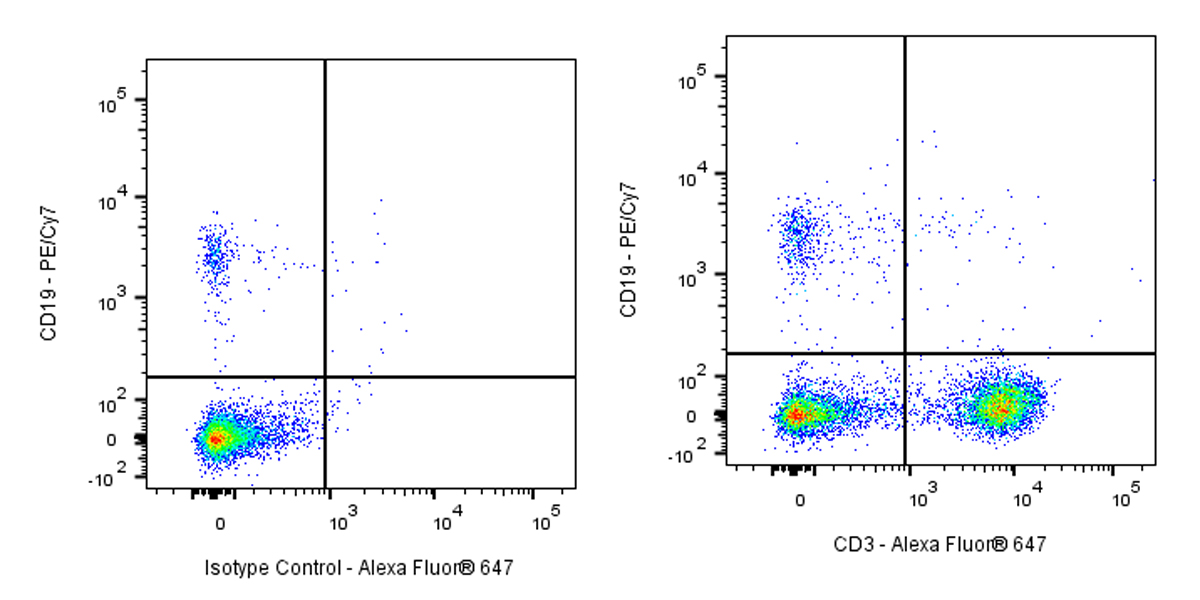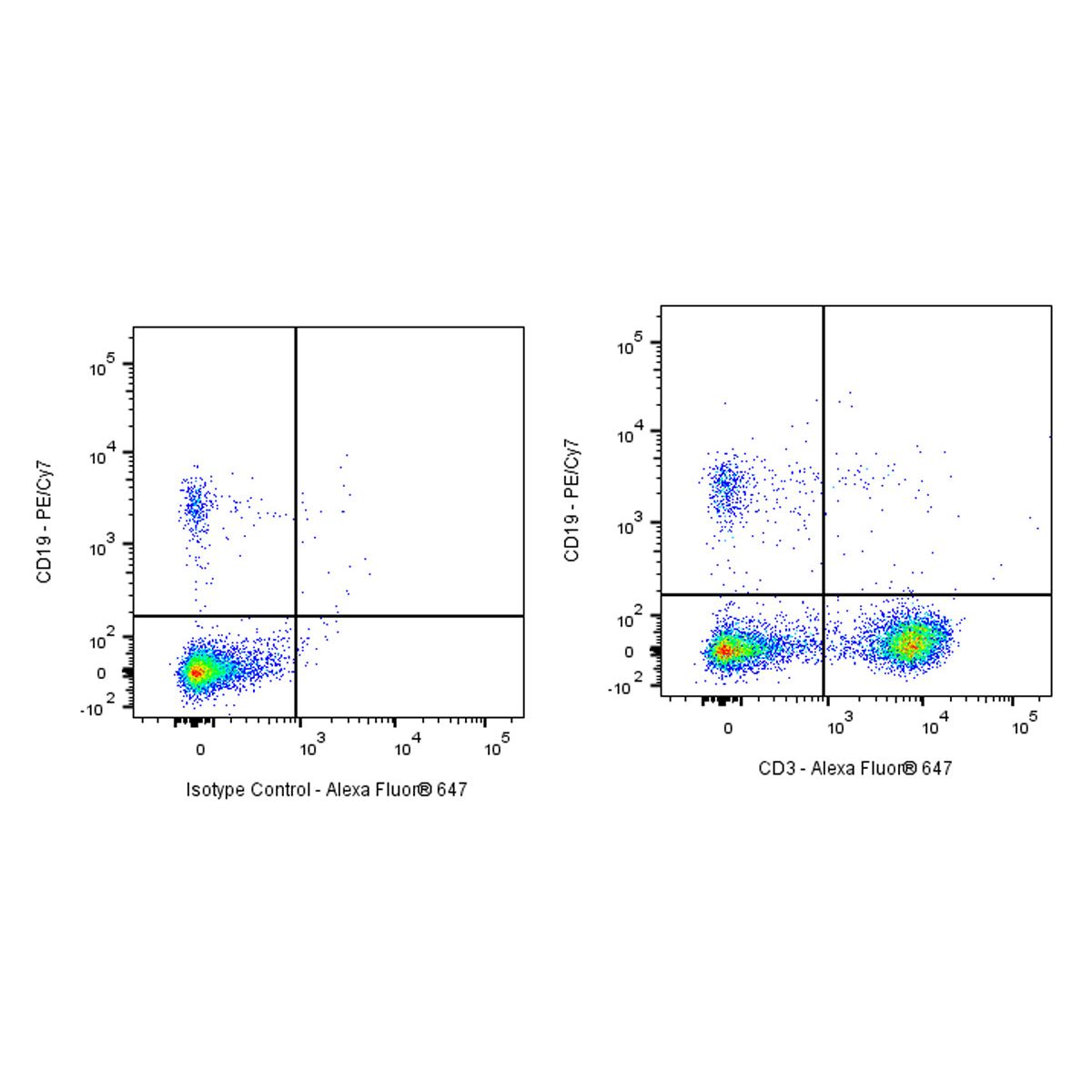Flow cytometric analysis of Human CD3 expression on human PBMC (human peripheral blood mononuclear cell). Human PBMC were stained with PE/Cy7 Mouse Anti-Human CD19 antibody and either Alexa Fluor® 647 Mouse IgG2a, κ Isotype Control (Left panel) or SDT Alexa Fluor® 647 Mouse Anti-Human CD3 Antibody (OKT3) (Right panel) at 0.1 μg/test. Flow cytometry and data analysis were performed using BD FACSymphony™ A1 and FlowJo™ software.
Product Details
Product Details
Product Specification
| Host | Mouse |
| Antigen | CD3 |
| Synonyms | T-cell surface antigen T3/Leu-4 epsilon chain, CD3e, T3E |
| Location | Cell membrane |
| Accession | P07766 |
| Clone Number | OKT3 |
| Antibody Type | Recombinant mAb |
| Isotype | IgG2a,k |
| Application | FCM |
| Reactivity | Hu |
| Purification | Protein A |
| Concentration | 0.02mg/ml |
| Conjugation | Alexa Fluor® 647 |
| Physical Appearance | Liquid |
| Storage Buffer | PBS, 0.1% BSA, 0.01% Proclin 300 |
| Stability & Storage | 12 months from date of receipt / reconstitution, 2 to 8 °C as supplied. |
Dilution
| application | dilution | species |
| FCM | 5 μl per million cells in 100μl volume |
Background
CD3 (cluster of differentiation 3) is a protein complex and T cell co-receptor that is involved in activating both the cytotoxic T cell (CD8+ naive T cells) and T helper cells (CD4+ naive T cells). It is composed of four distinct chains. In mammals, the complex contains a CD3γ chain, a CD3δ chain, and two CD3ε chains. These chains associate with the T-cell receptor (TCR) and the CD3-zeta (ζ-chain) to generate an activation signal in T lymphocytes. The TCR, CD3-zeta, and the other CD3 molecules together constitute the TCR complex. The CD3–T cell receptor (TCR) complex plays a central role in the T-cell-mediated immunoresponse as it is involved in the recognition of antigens and subsequent signal transduction and activation of immunocompetent T lymphocytes. Because CD3 is required for T cell activation, drugs (often monoclonal antibodies) that target it are being investigated as immunosuppressant therapies (e.g., otelixizumab, teplizumab) for type 1 diabetes and other autoimmune diseases.
Picture
Picture
FC



